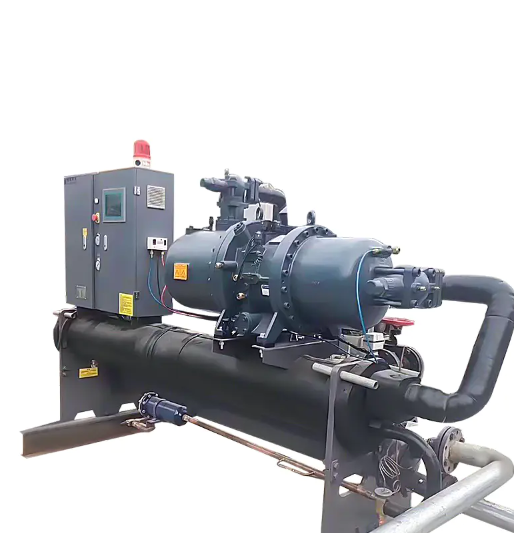Summary:Water-cooled screw chiller systems are a specific type of air conditioning and refrigeration technology that utilizes water as the primary medium for
Water-cooled screw chiller systems are a specific type of air conditioning and refrigeration technology that utilizes water as the primary medium for cooling. These systems offer numerous advantages over their air-cooled counterparts, making them a preferred choice for a variety of cooling applications. Let's delve into a detailed exploration of these advantages.
Water-cooled chillers are known for their superior energy efficiency compared to air-cooled systems, owing to water's higher heat capacity and thermal conductivity. This property allows for more effective heat transfer, resulting in efficient cooling and lower energy consumption. Ultimately, this translates to significant operational cost savings.
Another advantage of water-cooled chiller systems is their ability to handle higher cooling capacities compared to air-cooled systems. This efficiency in managing substantial heat loads makes them ideal for cooling larger commercial or industrial facilities.
Water-cooled chillers excel in maintaining precise and consistent temperature control, ensuring a stable cooling effect. The water-based cooling loop allows for meticulous regulation of the cooling process, upholding the desired temperature with exceptional accuracy.
One notable benefit of water-cooled chiller systems is their reduced noise output compared to air-cooled systems. By placing the noisy condenser fans outside the building or in a dedicated mechanical space, indoor environments remain tranquil and conducive to productivity.
Water-cooled chillers typically require less space compared to their air-cooled counterparts, making them especially advantageous in settings with limited outdoor space. The absence of large air-cooled condenser fans contributes to a more compact system design.
In terms of environmental impact, water-cooled chiller systems tend to have a smaller footprint due to their reduced energy consumption. This results in lower greenhouse gas emissions, aligning with sustainability goals and environmental regulations.
These chillers often boast a prolonged operational lifespan and require less frequent maintenance. The protection offered by the water loop shields chiller components from external environmental factors, potentially extending the overall longevity of the system.
Water-cooled chiller systems offer flexibility in system design, catering to a diverse range of applications and building configurations. They can be seamlessly integrated into central plant systems or employed in distributed setups based on specific project needs.
A notable advantage of water-cooled chiller systems is their potential for heat recovery. Excess heat generated during the cooling process can be harnessed for heating applications within the building or for other industrial processes, further optimizing energy usage.
Lastly, water-cooled chiller systems demonstrate a remarkable ability to adapt to variable cooling loads, efficiently adjusting their capacity to align with the changing cooling requirements of the building. This adaptability contributes to additional energy savings and cost efficiencies.
Understanding these advantages is essential for informed decision-making when considering the implementation of a water-cooled screw chiller system. Their superior efficiency, environmental sustainability, and adaptability make them a compelling choice for diverse cooling needs in commercial, industrial, and institutional settings.














